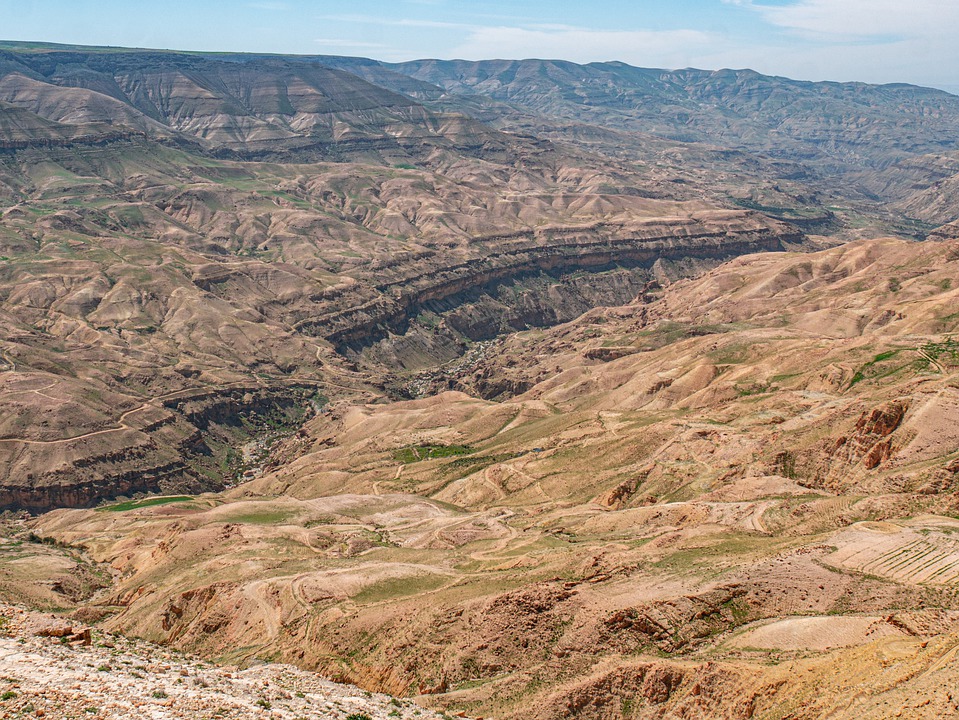Joren Verbist is a third-year undergraduate student undertaking a major in International land- and water management at the University of Wageningen (WUR). He is also currently carrying out an internship at the International Centre of Agriculture Research Dryland Areas (ICARDA), in Amman, Jordan. The below blog details some of his experiences, as well as preliminary information on his research.
The start of my journey from the Netherlands to Amman, Jordan is a long one in many senses. A five hour plane ride, one of my first ones alone to an unfamiliar place, gave me ample time to think about what has propelled me towards this type of work and study, what I want to achieve during my internship and all of the learning experiences, and challenges, lying ahead. Upon arrival in Amman and during my first day at the office, my colleagues help me feel at ease and settled into life and the ICARDA offices. Over a few lunches and post-work drinks, we quickly became familiar with one another.
My internship will focus on Sustainable Land Management (SLM). SLM offers solutions in terms of climate change, by carbon stocking. Simultaneously, SLM offers increased production and welfare of the local population (which are most vulnerable). In addition, increased production means more food, which is crucial since the global population is still growing significantly causing endangerment of the food security. In short, it is my belief that Sustainable Land Management could solve climate change by increasing global food security and local welfare!
Enrico Bonaiuti, a Monitoring, Evaluation and Learning Specialist and agronomist for ICARDA and my personal supervisor first introduced me to the Vallerani rehabilitation. He showed me the subject via the World Overview of Conservation Approaches and Technologies (WOCAT), but I was eager to learn more. WOCAT contained the Vallerani system for Burkina Faso. The project there has significantly increased the yields of the local farmers, improving their welfare and resilience, which indicates its’ great potential. More specifically, the Vallerani rehabilitation is a process in which a tractor-pulled plow constructs micro water harvesting structures along the contour, trapping surface run-off, offering vegetation a chance to grow in this harsh environment. The Vallerani plow, named after its Italian inventor, is able to rehabilitate large areas of land since it is mechanized. The modified Vallerani plough constructs ditches on contours in order to trap run-off water. The result is a series of micro-water harvesting structures. Since it is a mechanized way of constructing, the potential of out-scaling is rather big since relative costs are also low. A conventional plough only loosens up the soil by turning it, making soil more vulnerable for erosion. The relative costs (cost/ha) are significantly reduced compared to manual construction.
Stefan Strohmeier (Associate Scientist, Soil and Water Conservation) and Mira Haddad, (Research Associate, Spatial Analysis and Database Management) both scientist for ICARDA, based in Amman, then take me directly to the Vallerani site. The effect of the Vallerani rehabilitation is clearly and undoubtedly visible, as we spotted some vegetation growth. This was surrounded by completely deserted landscape, with only some rocks, vulnerable to further erosion and thereby negatively affecting the local herders. It is shocking to learn that just four years prior to the Vallerani rehabilitation, all the land was uniformly degraded. Mira and Stefan go on to tell me about an exception, which is greenery which we see downstream. The water, which assembled throughout the upstream areas was conveyed to this downstream plateau, where it was able to infiltrate. The system is clearly far from perfect, as the degrading landscapes and expanding gullies indicated, however, there is hope for the Vallerani Rehabilitation. I hope to be able to continue to be a small part of this improvement.


